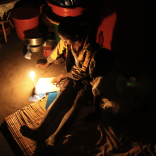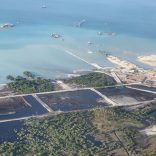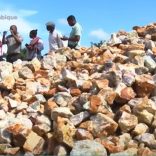Mozambique wants 'sustainable and inclusive' mining, local processing - minister
How the fall in commodity prices affects Mozambique

Deutsche Welle
The fall in the price of raw materials on world markets due to the slowdown in demand from China has negatively affected the Mozambican economy, but analysts say there is no cause for alarm, reports Deutsche Welle (DW).
Mozambique’s national currency, the metical, depreciated 50 percent In 2015, and public debt increased substantially. Foreign investment declined, and growth forecasts are more modest today than they were a few years ago. For the Economic Intelligence Unit’s Charlotte King, that makes Mozambique’s immediate future “challenging”.
“The pressures emerged in late 2015, because the government relied on a much faster increase in the export of coal. The very low price of coal and the high dependence on imports has worsened the structural deficit, but Mozambique dependence on coal is still only in its initial stages,” King told DW.
The analyst points out that the problem is not therefore the collapse of the coal boom, but the fact that the expected boom never really happened. This, then, is a good time to implement measures diversifying the economy.
Focus on development
Compared to neighbouring countries, Mozambique is many years behind in the development of its industry, infrastructure, regulatory regime and financial sector. King believes that expecting natural gas to solve all the country’s ills will not work, at least not in the short or medium term.
“It will take much longer to develop the exploration than the government thinks. Liquefied natural gas will not start being exported in 2020. There are no contracts with suppliers or infrastructure development plans, much less financing plans,” she says.
Still, the economist is not pessimistic. She does not foresee a scenario where Mozambique is unable to repay its state debt, and the country will therefore avoid a severe macroeconomic crisis. To King, a more serious issue is the lack of progress in combating poverty, despite two decades of strong growth. “This is precisely a consequence of allowing growth to be heavily dependent on raw materials, either carbon or aluminum, neglecting job creation in, for example, production,” she says.
Political crisis also affects the economy
Although King doesn’t think that responsibility for the current economic crisis in Mozambique rests solely with President Nyusi, she believes that he has reacted too slowly to the challenges, despite austerity measures recently implemented already producing positive results, such as the contraction of the fiscal deficit.
“Part of the difficulty in implementing these measures is the high resistance of both politicians and the private sector, both used to a spender state,” she said.
Pressure from the donors the state budget relies on will not decrease – rather the contrary. Further reforms will therefore transpire in the near future, King believes. But economic development also depends on the country’s ability to overcome its current political crisis, in which the coming months will be decisive.












Leave a Reply
Be the First to Comment!
You must be logged in to post a comment.
You must be logged in to post a comment.